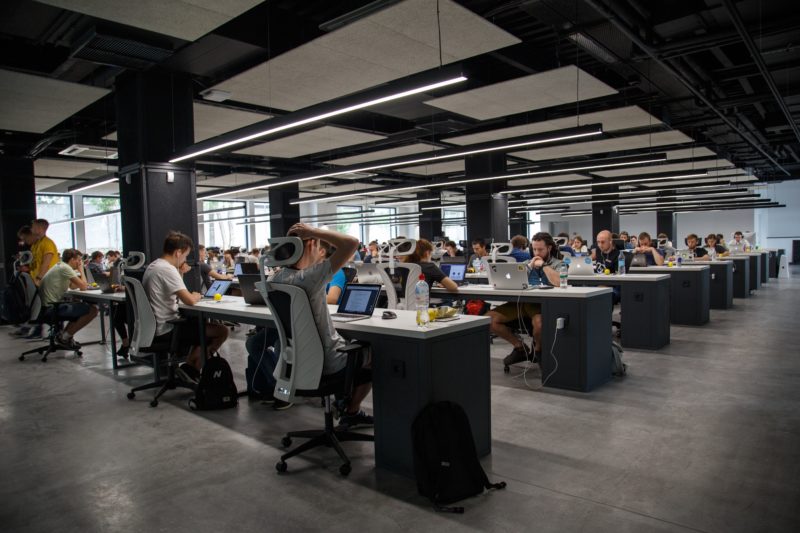
Thanks for looking up and smiling just now…
What do you notice around your workspace?
What do you notice: the tops or sides of people’s heads? Everyone looking straight ahead or down (even in elevators)? Likely you are making very little eye contact.
I visit many different companies when teaching Mindfulness in the workplace. It is fascinating to observe that while office environments have certainly changed, so much has remained the same.
Yes, workstations and desks are now crowded with electronics … at least with one, but commonly with two or more monitors … and it is routine to see workers wear headsets or ear buds. And yet for now, these offices are still inhabited by (lots of) people.
“We can also give things like our time, our talents, and our full presence…”
I appreciated when a friend recently shared this insightful article with me, Generosity vs. Giving. What Does It Mean to Be Generous? Though written about Mindful Schools with younger students in mind, the subject matter is just as important for adults in the busy workplace.
Author Amy Love explains the difference between giving with “one-hand” versus “open-hand giving”: “Contrary to one-handed giving, open-handed, or open-hearted generosity is a way of letting go with kindness and gentleness that has no regret, no feeling of loss associated with it.”
An example of one-handed giving is taking the time to review the wording of a colleague’s email when asked for feedback, even though you’re really busy and don’t have the time. You complete the task with one eye on the clock.
An example of open-handed or open-hearted giving is later in the day when you ask that same colleague if they received a response back after sending the email that had extreme attention paid to the message – and as you listen to the response, you are not thinking about how else you could be spending your time. In this case you are making the time to be fully present and truly listening to a colleague’s feelings, without judging or giving any advice at all.
Remember that at some point in your life, all your friends were once strangers.
The author shared this lovely story told by Thich Nhat Hahn:
There is a kind of vegetable in Vietnam called he (pronounced “hey”). It belongs to the onion family and looks like a scallion, and it is very good in soup. The more you cut the he plants at the base, the more they grow. If you don’t cut them, they won’t grow very much. But if you cut them often, right at the base of the stalk, they grow bigger and bigger. This is also true of the practice of generosity. If you give and continue to give, you become richer and richer all the time, richer in terms of happiness and well-being. This may seem strange, but it is always true.
The article by Love is truly worth your time if you work with others, have children, or occasionally interact with other people in the world.
PHOTO CREDIT: Alex Kotliarskyi on Unsplash
Provide a life-changing program for your employees and create a healthier more collaborative and engaged workplace.